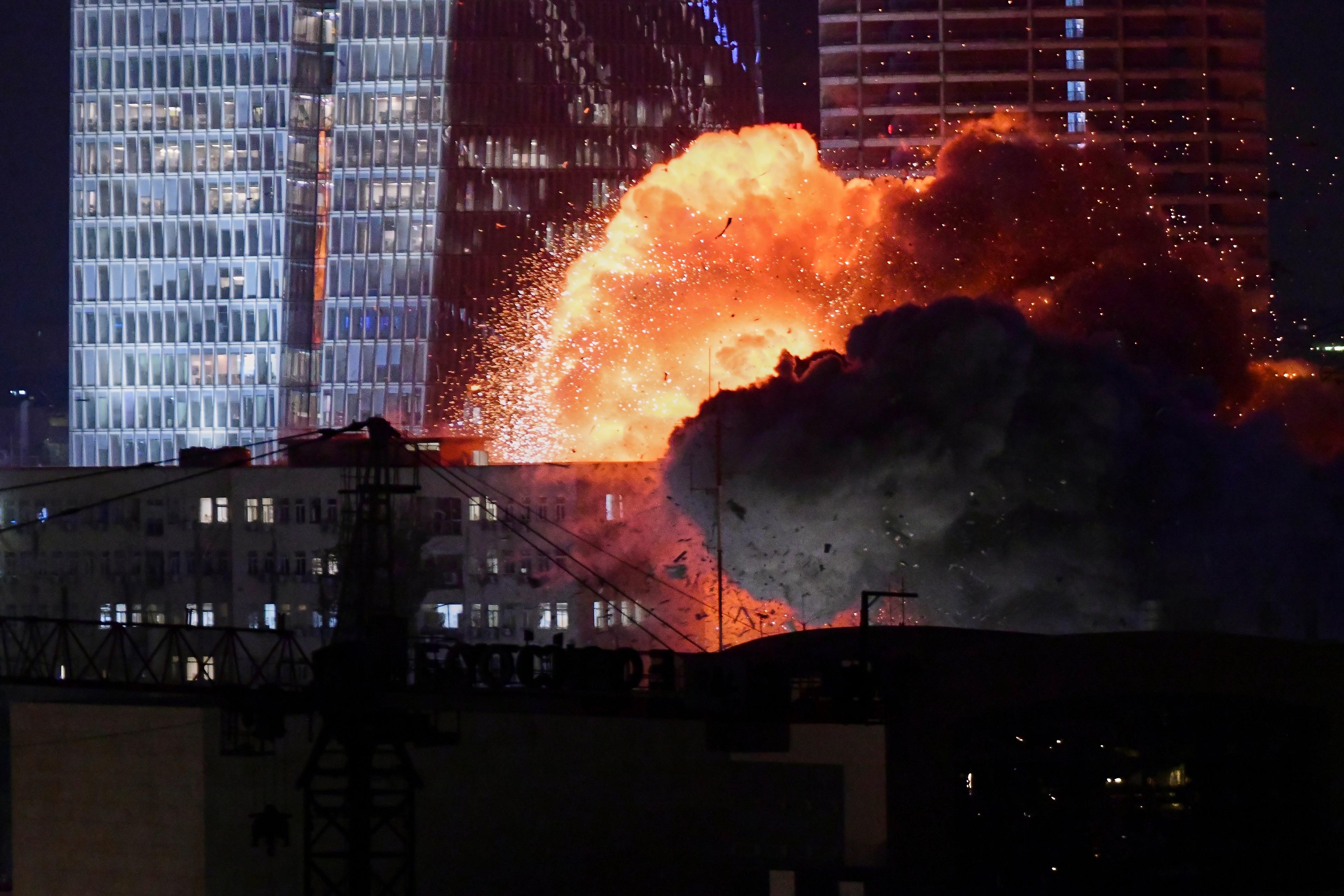“We would rather not be tweeting the same thing many times in a day, but millions of Israelis keep running to shelter as Iran keeps shooting more ballistic missiles at Israel,” the IDF said in the post.
Less than an hour earlier, another IDF post gave an update on the situation in northern Israel, with a map focusing on areas southwest of the Sea of Galilee.
“Israelis are currently running for shelter in northern Israel as sirens sound due to another missile launch from Iran,” the post said.
Sirens sounded in several areas across the nation, and the public was instructed to take shelter until further notice and follow the instructions of the Home Front Command.
“At this time, the [Israeli Air Force] is operating to intercept and strike where necessary to eliminate the threat,” the IDF said.
Iravani addressed an emergency meeting of the U.N. Security Council on June 13, saying that Israel’s actions were a “barbaric and criminal attack.”
According to the ambassador, “the overwhelming majority” of the victims were civilians.
“These atrocities constitute clear acts of state terrorism and flagrant violation of international law,” Iravani said.
“I call on all parties to exercise maximum restraint to avoid further escalation,” he said. “I reiterate that any military action that jeopardizes the safety and security of nuclear facilities risks grave consequences for the people of Iran, the region, and beyond.”
The agency acknowledged that Israelis destroyed the above-ground part of a Pilot Fuel Enrichment Plant, where Iran was producing enriched uranium up to 60 percent U-235. The facility’s electric infrastructure was also destroyed.
Grossi addressed concerns of radioactivity after the attack.
“The level of radioactivity outside the Natanz site has remained unchanged and at normal levels indicating no external radiological impact to the population or the environment from this event,” he said. “However, due to the impacts, there is radiological and chemical contamination inside the facilities in Natanz.”
Grossi went on to say that his agency was talking with Iran’s regime about Israel’s strikes at other nuclear facilities, such as Fordow Fuel Enrichment Plant, and a fuel plate fabrication plant in Esfahan.
The number of people wounded from the attack has increased, with 15 being treated at Sheba Hospital, one of whom is critically wounded.
“In the past hour, two barrages of surface-to-surface missiles were launched from Iran toward Israeli territory,” IDF spokesperson Brig. Gen. Effie Defrin said. “Fewer than 100 missiles were fired. Most were intercepted by air defense systems or failed to reach their targets. There are a few impacts on buildings, some caused by interception debris.”
No details of the call were provided, and the administration has yet to release a readout or statements regarding the discussion.
The phone call marks the second time in as many days that the leaders talked about the ongoing situation in the Middle East.
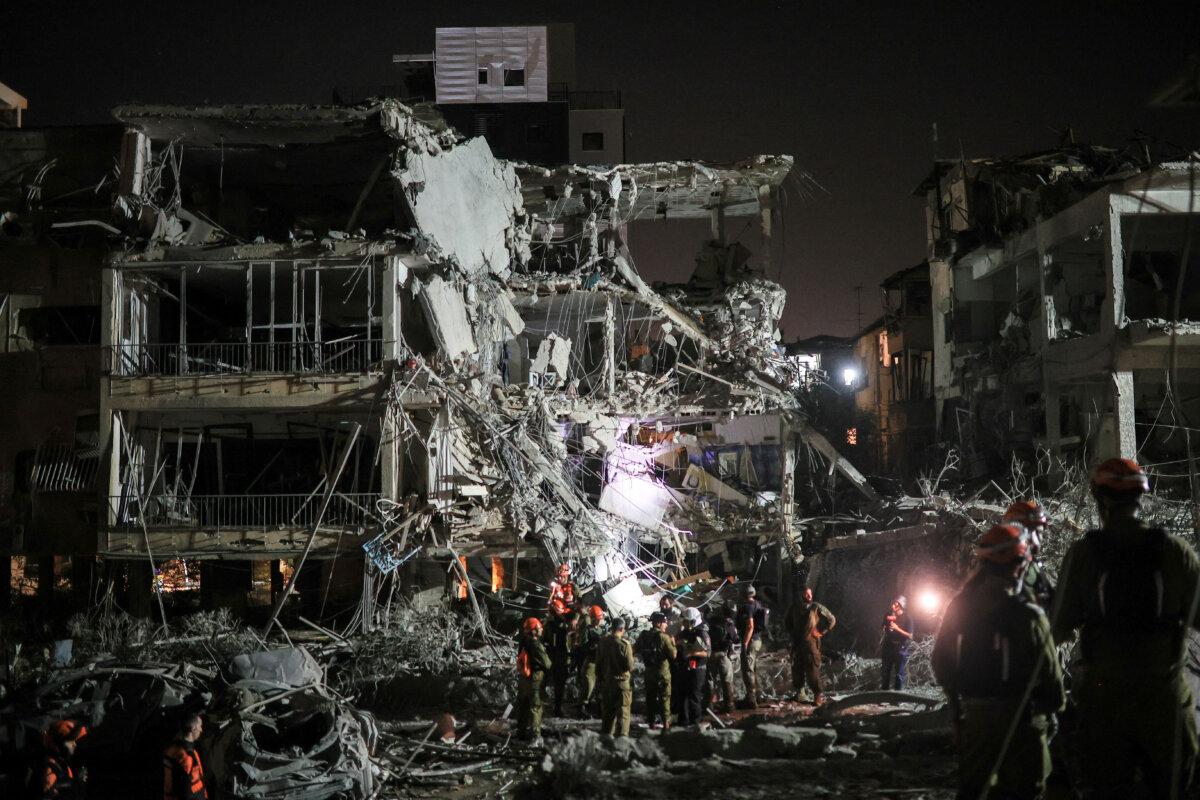
“Israel's fight is not with you,” he said. “It's not with you, the great people of Iran, whom we respect and admire. Our fight is with our common enemy: a murderous regime that both oppresses you and impoverishes you.”
Netanyahu told them that the objective of Israel’s operation, Rising Lion, was to eliminate the nuclear and ballistic missile threat the current Islamic regime poses to it. As his nation achieved that objective, he said, it cleared the way for the Iranian people to achieve their goal: freedom.
He said the regime that has been in power for nearly 50 years has never been weaker after Israel’s attack. He called the people of Iran brave and assured them that the people of Israel were on their side.
“The nation of Iran and the nation of Israel have been true friends since the days of Cyrus the Great, and the time has come for you to unite around your flag and your historic legacy by standing up for your freedom from an evil and oppressive regime,” he said.
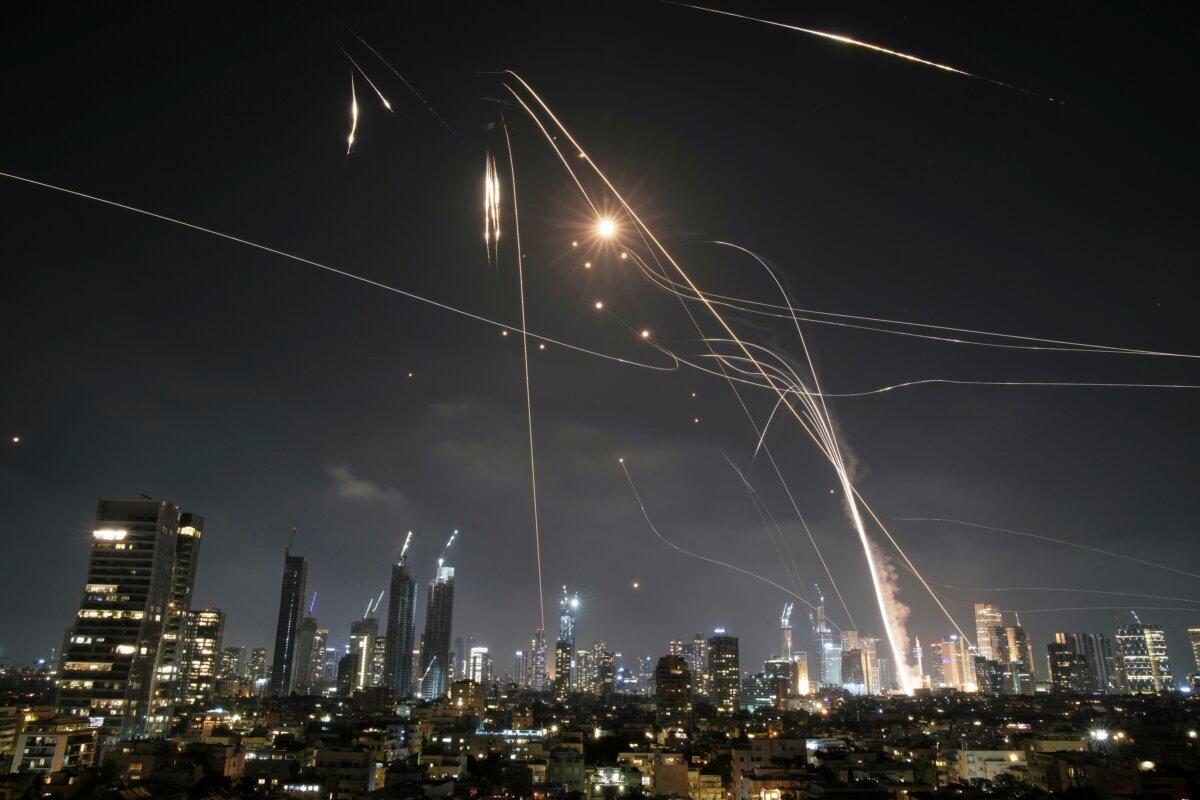
“Following the situational assessment, the Home Front Command published that it is now permitted to leave protected spaces in all areas across the country and to remain near them,” the IDF shared on Telegram.
“You are requested to continue to follow the instructions of the Home Front Command and the instructions sent to you.”
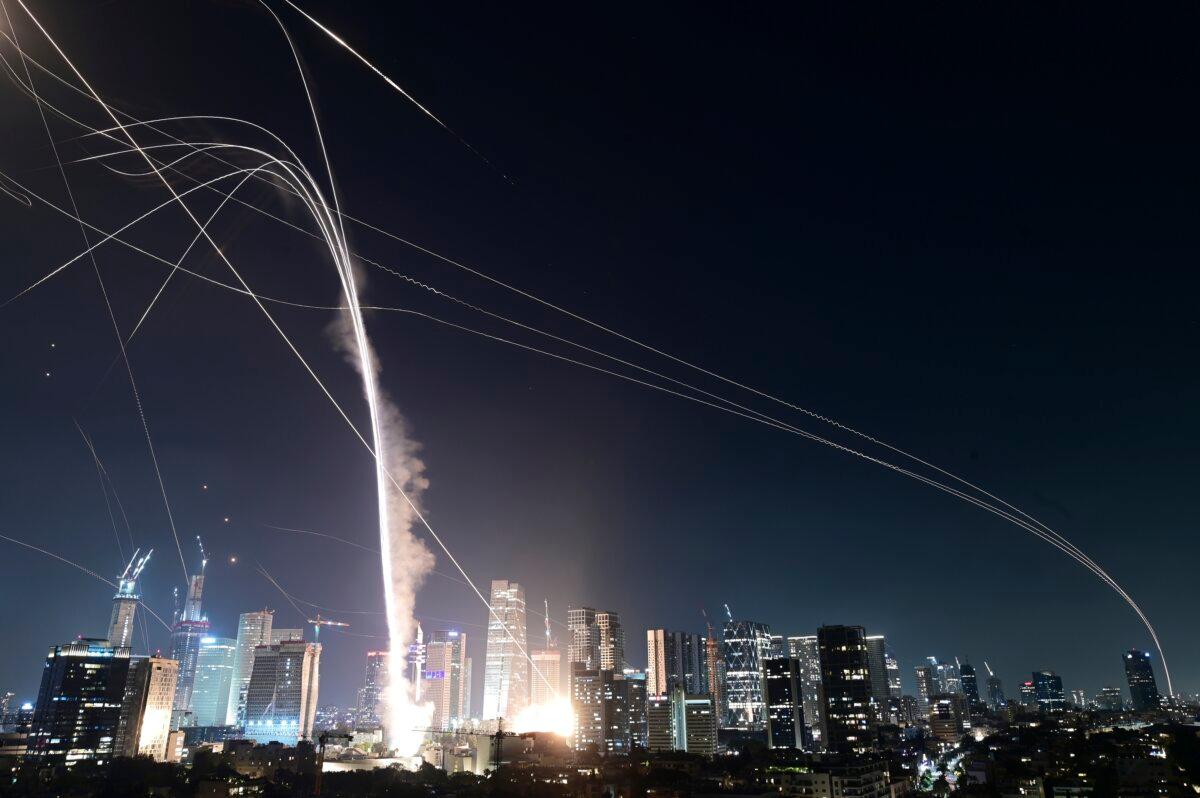
One casualty is said to be in moderate condition, and the other four were lightly injured by shrapnel.
The Associated Press contributed.
“The attack is ongoing,” the IDF said. “Dozens of additional missiles were launched toward the State of Israel.”
The IDF said that the Aerial Defense Array was continuing to identify and intercept rockets.
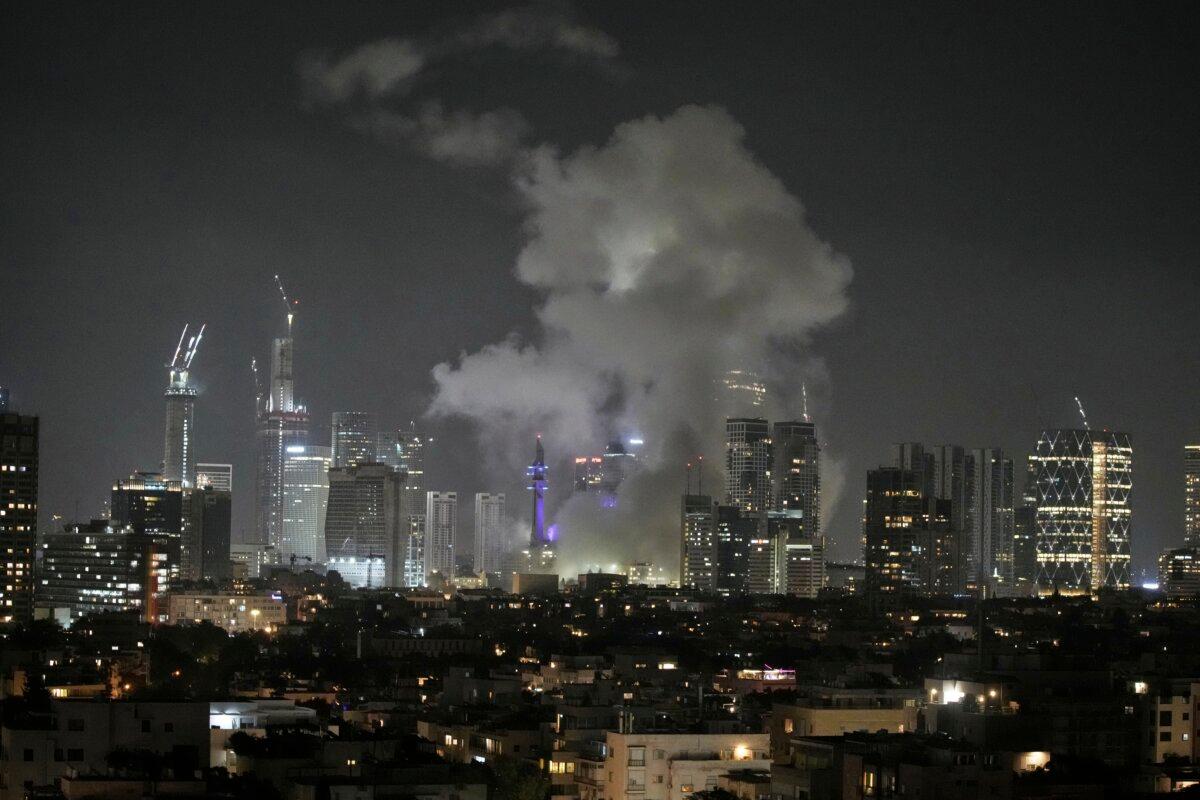
“Don’t think that they hit and it’s over. No. They started the work and started the war. We will not allow them to escape safely from this great crime they committed,” he said.
Iran’s government news agency confirmed that hundreds of ballistic missiles were launched at Israel.
“The firing continues. Another volley of dozens of missiles was launched towards the State of Israel. You are asked to continue to obey the instructions of the Home Front Command and the instructions that are being distributed to you. The explosions you hear come from interceptions or crashes,” posted the IDF on X.
“The air defense system constantly identifies and intercepts threats.”
A shelter-in-place order has been issued in Israel.
“At this time, the IAF is operating to intercept and strike where necessary to eliminate the threat,” the IDF said.
"Moments ago, the sound of two explosions was heard from the Fordow site area, and two points on the ground in the Fordow area were targeted," according to Iranian state media.
“At this moment, Air Force fighter jets have completed an attack on the Iranian regime's nuclear site in the Isfahan area, under precise intelligence guidance from the Intelligence Branch. The site is undergoing a process of 'reconversion' of enriched uranium. This is the next stage after uranium enrichment in the process of producing nuclear weapons,” posted the IDF on X.
“The attack destroyed a structure for producing metallic uranium, infrastructure for converting enriched uranium, laboratories, and other infrastructure.”
IDF international spokesperson Lt. Col. Nadav Shoshani posted on X that the strike “is in addition to operations in Natanz.”
“Movement in the area should be reduced and large gatherings should be avoided. Upon receiving the warning, one should enter the protected area and remain there until further official notice,” it said in a post on X in Hebrew.
“Intelligence obtained by Israel revealed a secret program to develop all necessary parts of a bomb—uranium enrichment, triggering mechanisms, and warhead delivery systems,” the ambassador said.
Danon also said Israel had information that Iran was planning a surprise attack on his country “in coordination with their proxies,” that included invasion from all sides, and the use of projectiles.
The president said he attempted to “save Iran humiliation and death" by negotiating beforehand.
"I tried to save them very hard because I would have loved to have seen a deal worked out,” Trump said in an interview with Reuters.
Iran can still negotiate a deal, Trump said, adding, “It’s not too late.”
U.S. special envoy Steve Witkoff is set to meet with Iranian officials in Oman on Sunday.
The president said it is unclear whether Iran still has a nuclear program following the recent strikes.
This occurred after the death of Hezbollah leader Hassan Nasrallah, who was killed in a strike by Israel in Lebanon in September. Netanyahu feared that Iran would ramp up its nuclear program following his death.
Netanyahu wanted the attack on Iran to be in April, but pushed it off for reasons he declined to specify.
Netanyahu also said that Iran advanced its ballistic missile program in an attempt to produce 300 missiles monthly.
“That means that within three years, that's 10,000 weapons,” he said. “Within six years, 20,000 missiles, each one full of explosive material.”
Netanyahu said Israel needed to go ahead with the operation with or without U.S. support. He said that Israel informed the United States ahead of the attack.


The head of the United Nations’ nuclear agency has confirmed that an Iranian nuclear facility was damaged during widespread Israeli strikes in Tehran overnight.
International Atomic Energy Agency Director Mariano Grossi said in a statement on Friday that attacks carried out by Israel on nuclear facilities were confirmed to him by Iranian officials and that the “Natanz enrichment site has been impacted,” but that radiation levels are not elevated.
“This development is deeply concerning. I have repeatedly stated that nuclear facilities must never be attacked, regardless of the context or circumstances, as it could harm both people and the environment,” the U.N. official said.
“Such attacks have serious implications for nuclear safety, security and safeguards, as well as regional and international peace and security.”
Gross’s statement did not go into detail about the damage that was done during the strikes.
A spokesman for the Natanz site told Iranian state-run Tasnim News that only superficial damage was done to the nuclear facility, located in central Iran. The spokesman, Behrouz Kamalvandi, added that the uranium enrichment facility in another province was unharmed during the Israeli strikes.
Iranian Supreme Leader Ayatollah Ali Khamenei suggested via state-run media that Iran would take action in response to the strikes with “the powerful arm of the Islamic Republic’s Armed Forces,” which will not “let them go unpunished.”
Israel, he added, “has prepared for itself a bitter, painful fate, which it will definitely see,” noting that multiple commanders and scientists were killed in the strikes.
A number of top Iranian military officials, including the head of Iran’s Revolutionary Guard, Hossein Salami, were killed in the strikes. Also killed were Iran’s chief of staff for the armed forces, the ranking commander of the Revolutionary Guards, and the head of the Guard’s missile program.
Meanwhile, Iranian President Masoud Pezeshkian said his nation would “strongly take action” against Israel following its attacks on the country. In a televised address Friday, Pezeshkian urged people to unite behind the theocratic government.
U.S. President Donald Trump had previously warned that Israel or the United States could launch airstrikes against Iranian nuclear facilities if negotiators failed to reach a deal on Iran’s rapidly advancing nuclear program. A sixth round of Iran–U.S. talks is scheduled to begin on Sunday in Oman.
On Friday morning, Trump wrote on social media that Iran should come to the negotiating table on its nuclear program before it’s too late.
“Two months ago I gave Iran a 60 day ultimatum to ‘make a deal,’” he wrote on Truth Social. “They should have done it! Today is day 61. I told them what to do, but they just couldn’t get there. Now they have, perhaps, a second chance!”
Trump also called the Israeli strikes on Iran “excellent” and suggested more attacks may come.
“I think it’s been excellent. We gave them a chance and they didn’t take it,” Trump told ABC on Friday morning. “They got hit hard, very hard. They got hit about as hard as you’re going to get hit. And there’s more to come, a lot more.”
Iran’s U.N. Mission on Friday asked for an emergency meeting of the Security Council following the Israeli attacks. The emergency session is likely to take place on Friday afternoon, the mission said.
The Associated Press contributed to this report.
“Radiation levels outside the Natanz facility remained unchanged. The type of radioactive contamination present inside the facility, mainly alpha particles, can be managed with appropriate protective measures,” the IAEA posted on social media platform X on June 13.
“As of now, the Fordow Fuel Enrichment Plant has not been impacted,” IAEA Chief Rafael Grossi said in an X post.
“Iranian authorities have informed the IAEA that the Bushehr Nuclear Power Plant has not been targeted and that no increase in radiation levels has been observed at the Natanz site,” Grossi said in a separate post.
“Further contacts with Iranian authorities confirm that the Isfahan nuclear site has not been impacted,” he added.
Iran has said it will retaliate following the Israeli attack.
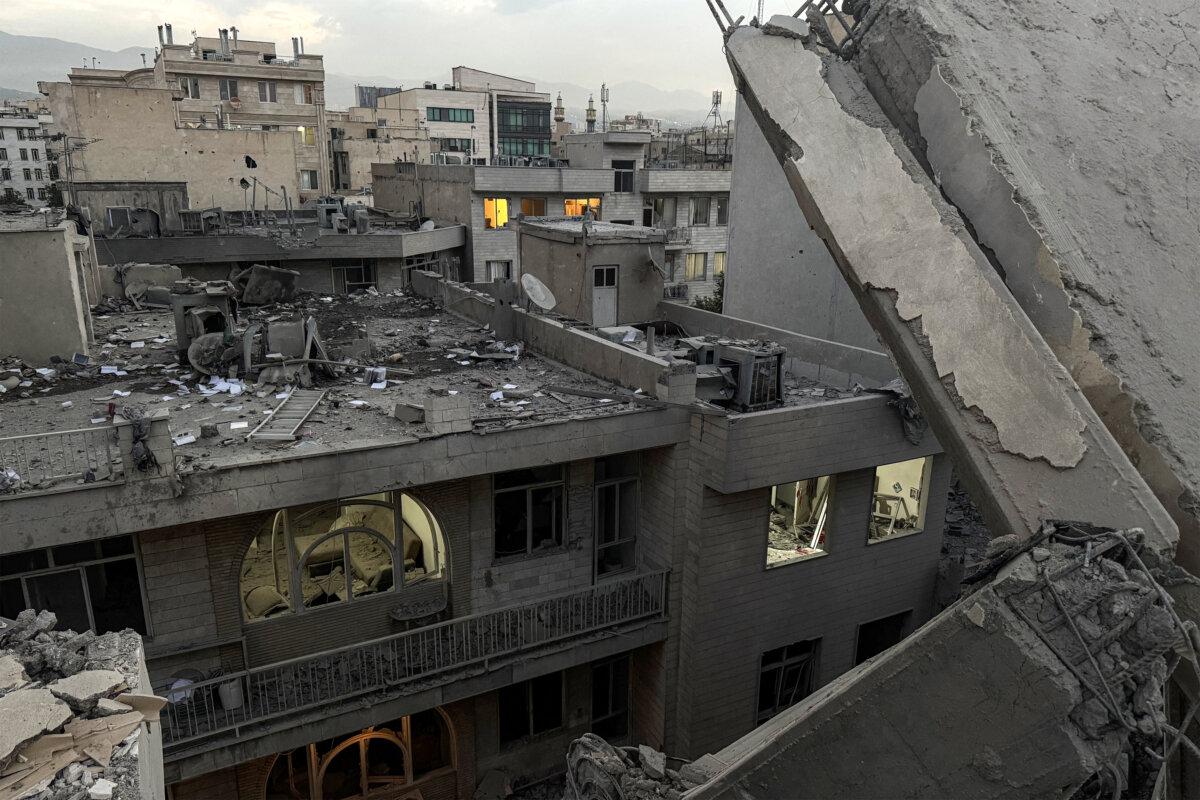
“They’re calling me to speak,” he said."The same people we worked with the last time ... Many of them are dead now."
Trump did not name the officials.
Al-Sudani met with U.S. Embassy Chargé d’Affaires Steven Fagin and Gen. Kevin Leahy, commander of the International Coalition to Combat ISIS, and said Israel’s action “constitutes a blatant violation of international law,” according to the prime minister’s media office.
The Iraqi leader stressed his position that the international community should take “immediate steps” to “reaffirm the prohibition on the use of force” to prevent uncontrolled violence in the region.
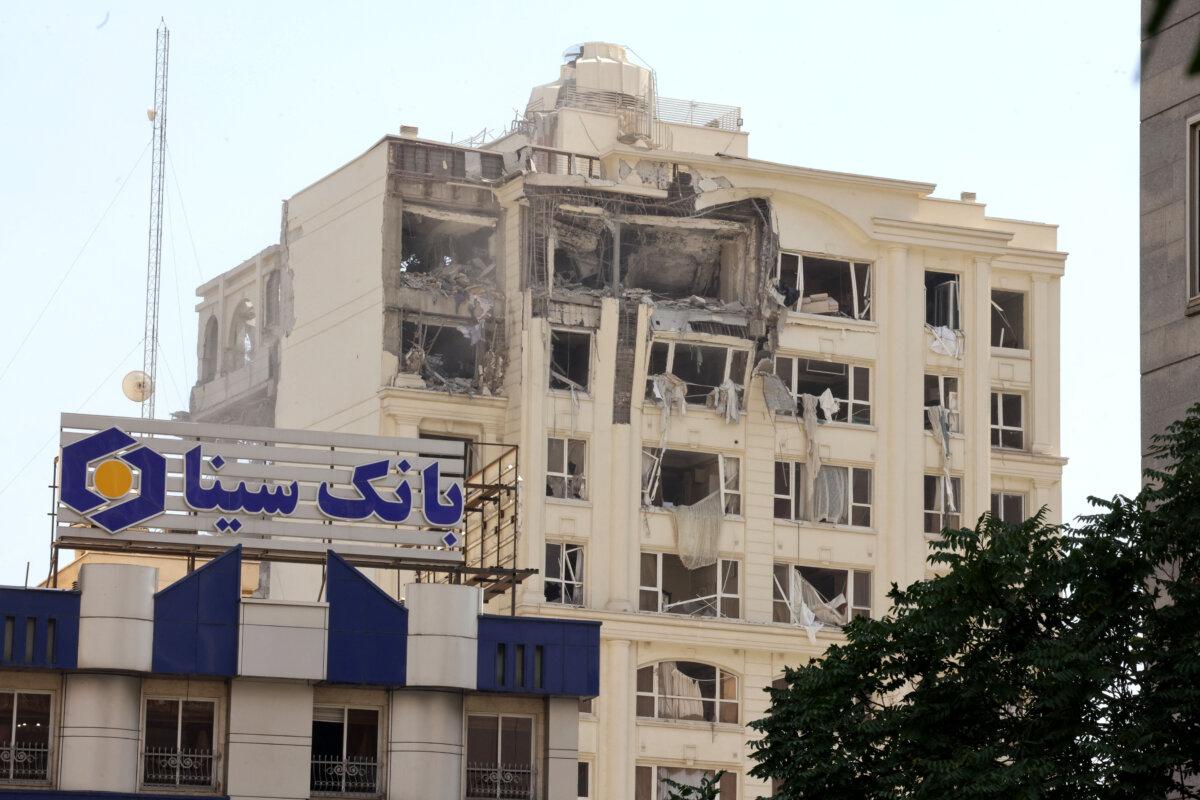
“The leaders showed understanding for Israel’s defense needs in the face of the Iranian threat of annihilation,” the statement reads.
Netanyahu also has plans to speak with President Donald Trump, Russian President Vladimir Putin, and the British Prime Minister Keir Starmer.
“Israel’s strikes against Iran represent an escalation that is deeply concerning and will inevitably invite counterattacks,” she said in a statement.
“This risks not only U.S. negotiations with Iran, but the safety of American service members, diplomats, their families and ex-pats around the region,” she continued.
“I agree with President Trump’s instinct to distance the U.S. from Israel’s actions, but Iran and its proxies are unlikely to differentiate the U.S. from Israel.”
"Heads-up? It wasn’t a heads-up. It was, we know what's going on," he told The Wall Street Journal.
Trump said the Israeli operation was "a very successful attack, to put it mildly."
Trump said he spoke with Israeli Prime Minister Benjamin Netanyahu on June 12 and plans to speak with him on Friday.
"I told the other side, I said, you have 60 days to make the deal. On the 61st day, they attacked. Today is 61 actually, and it was a very successful attack," he said.
"They should have made a deal and they still can make a deal while they have something left— they still can."
When it comes to the economy, Trump said, “I think ultimately, it would be great for the market because Iran will not have a nuclear weapon. It will be great for the market—should be the greatest thing ever for the market. Iran won't have a nuclear weapon that was a great threat to humanity."

In his first comments since Israel launched a wave of strikes against Iran’s nuclear facilities on Friday, U.S. President Donald Trump urged the Islamic Republic to reach a nuclear deal “before it is too late.”
In a post on Truth Social, Trump said that he had given Iran “chance after chance” to make a deal, but “they just couldn’t get it done.”
“I told them it would be much worse than anything they know, anticipated, or were told, that the United States makes the best and most lethal military equipment anywhere in the World, BY FAR, and that Israel has a lot of it, with much more to come - And they know how to use it,” he wrote.
Trump added that hardliners in Tehran had “spoke bravely” but said that they didn’t know what was about to happen.
“They are all DEAD now, and it will only get worse!” he wrote.
“Iran must make a deal, before there is nothing left, and save what was once known as the Iranian Empire. No more death, no more destruction, JUST DO IT, BEFORE IT IS TOO LATE.”
In a later post, Trump added: “Two months ago I gave Iran a 60 day ultimatum to ’make a deal.' They should have done it! Today is day 61. I told them what to do, but they just couldn’t get there. Now they have, perhaps, a second chance!”
He also told ABC News chief Washington correspondent Jonathan Karl he thought the Israeli attacks had been “excellent.”
“We gave them a chance and they didn’t take it,” Trump said, adding that Iran “got hit about as hard as you’re going to get hit. And there’s more to come. A lot more.”
Officials from Tehran and Washington are due to begin the sixth round of talks regarding the Islamic Republic’s nuclear program in Muscat, Oman, on Sunday.
Overnight, Israel launched large-scale strikes against the Islamic Republic, saying it had targeted nuclear facilities, ballistic missile factories and military commanders as part of an operation to prevent Tehran building an atomic bomb.
Iran promised harsh retaliation, and Israel later said it was in the process of trying to intercept some 100 drones launched toward its territory.
Officials in Washington have said that the United States was not involved in the attack.
Trump’s comments struck a different tone from many other leaders and diplomats who have spoken in the wake of the strikes.
NATO Secretary-General Mark Rutte called on the alliance to push for de-escalation in the Middle East during a joint news conference with Swedish Prime Minister Ulf Kristersson in Stockholm.
“This was a unilateral action by Israel. So I think it is now crucial for many allies, including the United States, to work, as we speak, to de-escalate,” he said. “I know they’re doing that. And I think that is now the first order of the day.”
British Prime Minister Keir Starmer echoed those sentiments.
In a statement posted on social media platform X, Starmer said: “The reports of these strikes are concerning and we urge all parties to step back and reduce tensions urgently. Escalation serves no one in the region.”
German Chancellor Freidrich Merz said Israeli Prime Minister Benjamin Netanyahu informed him about the strike against Iran during a phone call.
He said Israel had a right to defend itself, but called on “both sides to refrain from steps that could lead to further escalation and destabilize the entire region,” according to Welt.
European Union Commission President Ursula von der Leyen also urged “maximum restraint” and immediate de-escalation.
“A diplomatic resolution is now more urgent than ever, for the sake of the region’s stability and global security,” she wrote on X.
French President Emmanuel Macron reiterated in an X post Paris’s condemnation of the Iranian nuclear program and affirmed that Israel had the right to defend itself.
He said that in light of the attacks, he had convened France’s National Security Council and said that the country “stands ready to work with all its partners to push for deescalation in the Near and Middle East.”
Macron has recently been critical of Israel’s actions in Gaza, and this week revealed he received a letter from Palestinian Authority leader Mahmood Abbas that he said contained “unprecedented commitments that demonstrate a genuine willingness to move forward.”
France is currently preparing to co-chair a U.N. conference on Palestinian statehood with Saudi Arabia in New York set to begin next week.
“Israel and the United States have been united, including in our shared insistence that Iran must never obtain a nuclear weapon. President Trump and his Administration have worked tirelessly to ensure that outcome. Unfortunately, Iran has refused to agree and even declared yesterday its intent to build a new enrichment facility,” he wrote on social media platform X.
“Israel decided it needed to take action to defend itself. They were clearly within their right to do so.
“Iran will face grave consequences if it responds by unjustifiably targeting U.S. interests.”
"I think it's been excellent. We gave them a chance and they didn't take it. They got hit hard, very hard. They got hit about as hard as you're going to get hit. And there's more to come. a lot more," he told ABC News.
Trump declined to comment on whether the United States was involved.
“Two months ago I gave Iran a 60 day ultimatum to ‘make a deal.’ They should have done it! Today is day 61. I told them what to do, but they just couldn’t get there. Now they have, perhaps, a second chance!” he wrote on Truth Social.
“The Iranian nation and officials will not remain silent in the face of this crime. The Islamic Republic of Iran's legitimate and powerful response will make the enemy regret its foolish act,” he said, according to Iranian state media.
Khamenei said he had appointed Gen. Abdolrahim Mousavi as the new Chief of Staff of the Armed Forces, replacing Gen. Mohammad Bagheri. Mousavi was previously the army's top commander.
He named Maj. Gen. Mohammad Pakpour to lead the paramilitary Revolutionary Guard, succeeding Gen. Hossein Salami.
Khamenei also appointed Maj. Gen. Ali Shadmani as commander of the Khatam al-Anbiya Central Headquarters, replacing Lt. Gen. Gholamali Rashid.
“This is the largest uranium enrichment site in Iran, which has operated for years to achieve nuclear weapons capability and houses the infrastructure required for enriching uranium to military-grade levels,” the IDF posted on social media.
“As part of the strikes, the underground area of the site was damaged. This area contains a multi-story enrichment hall with centrifuges, electrical rooms, and additional supporting infrastructure. In addition, critical infrastructure enabling the site's continuous operation and the Iranian regime's ongoing efforts to obtain nuclear weapons were targeted.”
Other senior officials who were killed include the commander of the UAV Force of the IRGC’s Air Force, Taher-pour, and the commander of the aerial command of the IRGC’s air force, Davoud Shaykhian.
“The Intelligence Directorate identified that the senior chain of command of the Islamic Revolutionary Guards Corps (IRGC) Air Force had assembled in an underground command center to prepare for an attack on the State of Israel,” the IDF said in a social media post.
“The IRGC’s Air Force is responsible for repeated attacks against Israeli civilians. Notably, Hajizadeh and his subordinates commanded Iran’s direct missile and UAV attacks against Israel in October 2024 and the direct missile strike in April 2024,” the IDF added in a follow-up post.
“In addition, the senior officials who were eliminated led the attack.”
“I told them it would be much worse than anything they know, anticipated, or were told, that the United States makes the best and most lethal military equipment anywhere in the World, BY FAR, and that Israel has a lot of it, with much more to come - And they know how to use it,” he wrote.
“Certain Iranian hardliner’s [sic] spoke bravely, but they didn’t know what was about to happen. They are all DEAD now, and it will only get worse!”
The president said Iran must make a deal “before there is nothing left.”
“No more death, no more destruction, JUST DO IT, BEFORE IT IS TOO LATE.”

Grossi told a meeting of the IAEA’s board of governors that he had "indicated to the respective authorities my readiness to travel at the earliest to assess the situation and ensure safety, security and non-proliferation in Iran."
He also said Iranian officials reported that, despite Israeli strikes on the Natanz nuclear complex, no elevated radiation levels were detected at the facility.
He did not elaborate on the extent of the damage.
Grossi added that Tehran said its nuclear facilities in Fordow and Esfahan had not been impacted.
"I call on all parties to exercise maximum restraint to avoid further escalation. I reiterate that any military action that jeopardizes the safety and security of nuclear facilities risks grave consequences for the people of Iran, the region, and beyond," he said.
"This was a unilateral action by Israel. So I think it is now crucial for many allies, including the United States, to work, as we speak, to de-escalate," he said. “I know they're doing that. And I think that is now the first order of the day."
British Prime Minister Keir Starmer echoed those sentiments.
In a statement posted on the social media platform X, Starmer said, “The reports of these strikes are concerning and we urge all parties to step back and reduce tensions urgently. Escalation serves no one in the region.”
German Chancellor Freidrich Merz said Israeli Prime Minister Benjamin Netanyahu informed him about the strike against Iran during a phone call.
He said Israel had a right to defend itself but called on “both sides to refrain from steps that could lead to further escalation and destabilize the entire region,” according to Welt.
“In the last few hours, Iran has launched more than 100 drones toward Israel, and all the defense systems are acting to intercept the threats,” IDF spokesman Brig. Gen. Effie Deffrin said.
Iran previously launched a large-scale drone attack against Israel in April 2024 following an Israeli operation that killed a high-ranking IRGC official in Damascus, Syria.
At the time, Israel said 99 percent of the drones were intercepted by its air defenses and its allies.
In a statement on the social media platform X, an IDF spokesperson said the chief of staff of Iran’s armed forces, the commander of the Revolutionary Guard, and the head of Iran’s emergency command were all “eliminated” in the strikes.
“These are three ruthless mass murderers with international blood on their hands. The world is a better place without them,” the spokesperson said.
He is among several top military officials killed in the strikes.
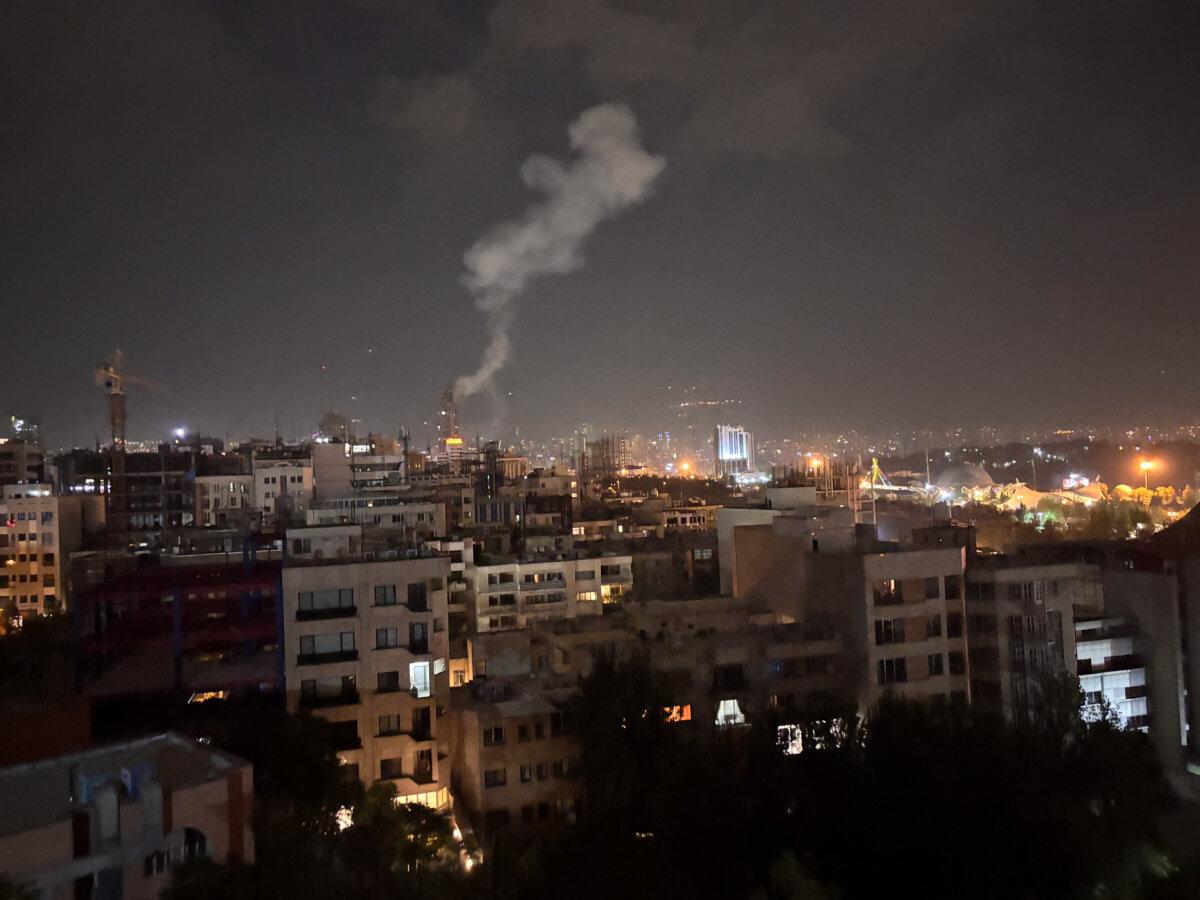
“The Secretary-General asks both sides to show maximum restraint, avoiding at all costs a descent into deeper conflict, a situation that the region can hardly afford,” Farhan Haq, the U.N. spokesperson, said in a statement Friday.
Guterres said that he was also concerned about Israel’s actions “while talks between Iran and the United States on the status of Iran’s nuclear programme are underway.”
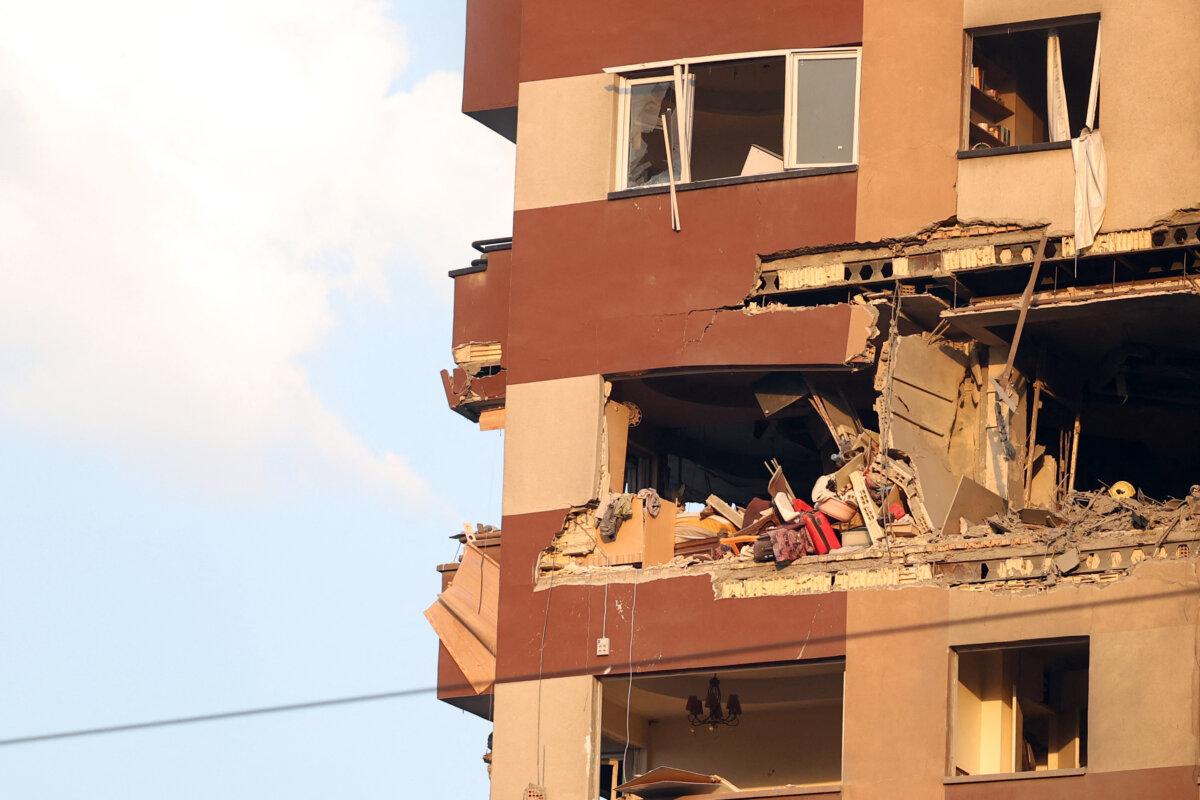
In addition, Iranian Brig. Gen. Abolfazl Shekarchi alleged that the Israeli air strikes were carried out with U.S. support, according to a report from Iran’s state-run news agency IRNA.
Israeli leaders said they were targeting Iranian nuclear sites, while the IRNA report said, “Images showed damaged residential buildings in several locations in the capital.” The report also stated that women and children were reported to be among the casualties.
U.S. officials have said that the United States was not involved in the strikes.
“The IAEA is closely monitoring the deeply concerning situation in Iran. Agency can confirm Natanz site among targets,” the agency’s director general Rafael Grossi said in a statement. “The Agency is in contact with Iranian authorities regarding radiation levels. We are also in contact with our inspectors in the country.”
The next session had been scheduled for Sunday in Oman. Although it was unclear how the Israeli military action would affect the talks, people in Iran were heard chanting “Death to Israel” and “Death to America” on Iranian state television.
Some Democrats applauded Trump’s diplomatic efforts while criticizing Israel’s strikes on Iran.
“I commend the Trump Administration for prioritizing diplomacy and working to curb Iran's nuclear program, and for refraining from participating in tonight's actions,” Sen. Tim Kaine (D-Va.) said in a statement posted on X.
“I cannot understand why Israel would launch a preemptive strike at this juncture, knowing high level diplomatic discussions between the United States and Iran are scheduled for this weekend.”
He called those talks “the only viable and sustainable path to curtailing Iran's development of nuclear weapons and protecting U.S. national security interests in the region.”
The state-run IRNA news agency publicized the statement from Khamenei and also confirmed that the Israeli attack had slain top military officials and scientists.
Israel “opened its wicked and blood-stained hand to commit a crime against our beloved country, revealing its malicious nature more than ever by striking residential centers,” Khamenei said.
An anchor on state television said, “The news of assassination and martyrdom of Gen. Hossein Salami was confirmed.” No further details were given.
IRNA also reported that two nuclear scientists were killed: Mohammad-Mehdi Tehranchi, president of the Islamic Azad University, and Fereydoun Abbasi, the former head of the Atomic Energy Organization of Iran.
The Associated Press contributed to this report.
“As a result of the current security situation, the U.S. Embassy has directed all U.S. government employees and their family members to shelter in place until further notice,” the statement reads.
The embassy also said that it might further restrict or prohibit government employees and their families from traveling to certain areas of Israel and the West Bank.
It also instructed all Americans in the country to monitor its website, as well as local media for the latest information, listen to local authorities, know where the closest bomb shelter is, and download the Home Front Command Red Alert application.
“The U.S. Embassy reminds U.S. citizens of the continued need for caution and increased personal security awareness—including knowing the location of the nearest shelter in the event of a red alert as security incidents, including mortar, rocket, and missile fire, and unmanned aircraft system (UAS) intrusions, often take place without any warning,” it added. “The security environment is complex and can change quickly.”
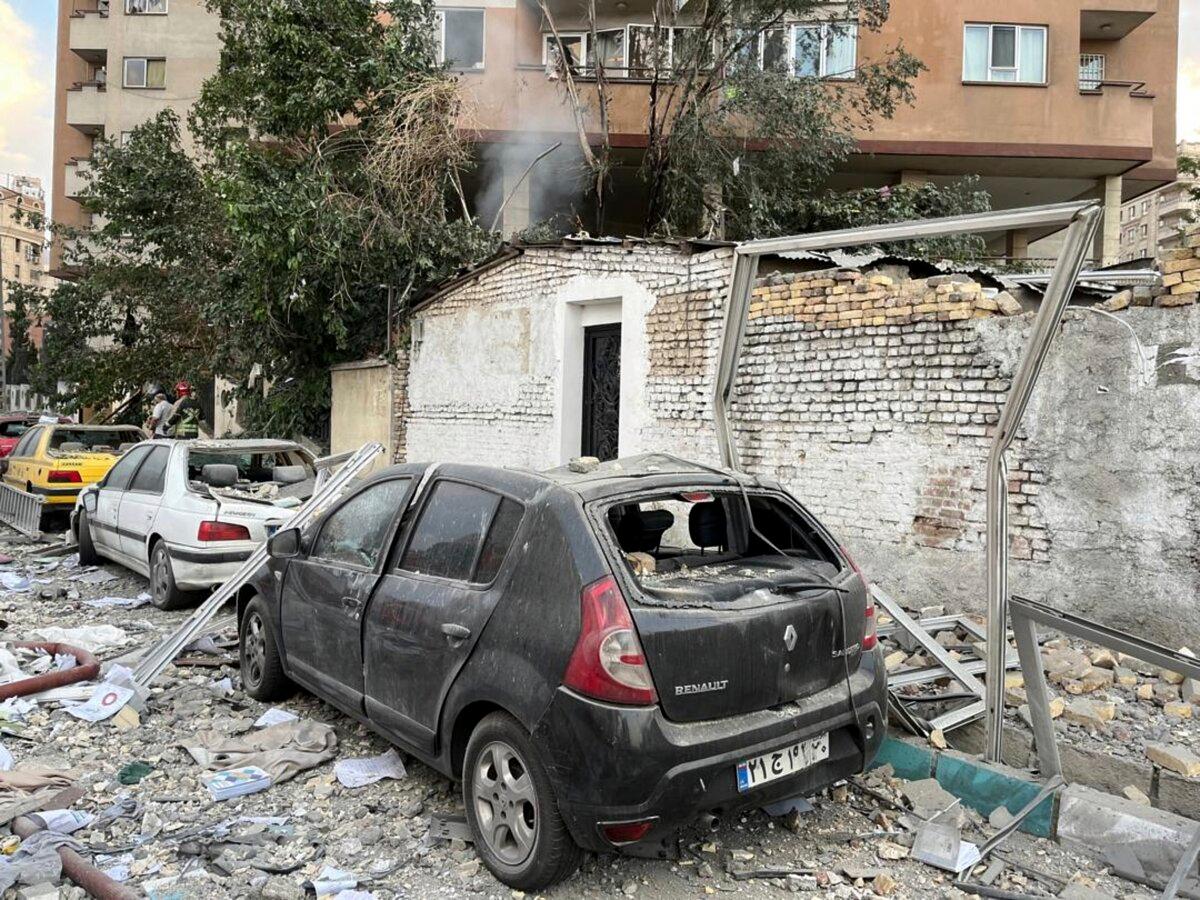
“I want to give a message to the Ayatollah right now: If you strike at America, if you attack our military bases, if you kill one single American serviceman or woman, I have every confidence that President [Donald] Trump will respond with overwhelming force,” Cruz told Fox News.
Israeli Prime Minister Benjamin Netanyahu, in a speech announcing the strikes posted on social media, described the threat posed by Iran.
For decades, Iranians have “called for Israel’s destruction,” Netanyahu said, and in recent years have accelerated their efforts to develop nuclear weapons “in a very short time.”
“This is a clear and present danger to Israel's very survival,” Netanyahu said.

“We stand with Israel tonight and pray for the safety of its people and the success of this unilateral, defensive action,” he wrote on X. “I am also praying for the brave U.S. service members in the Middle East who keep America safe—Iran would be foolish to attack the United States.”
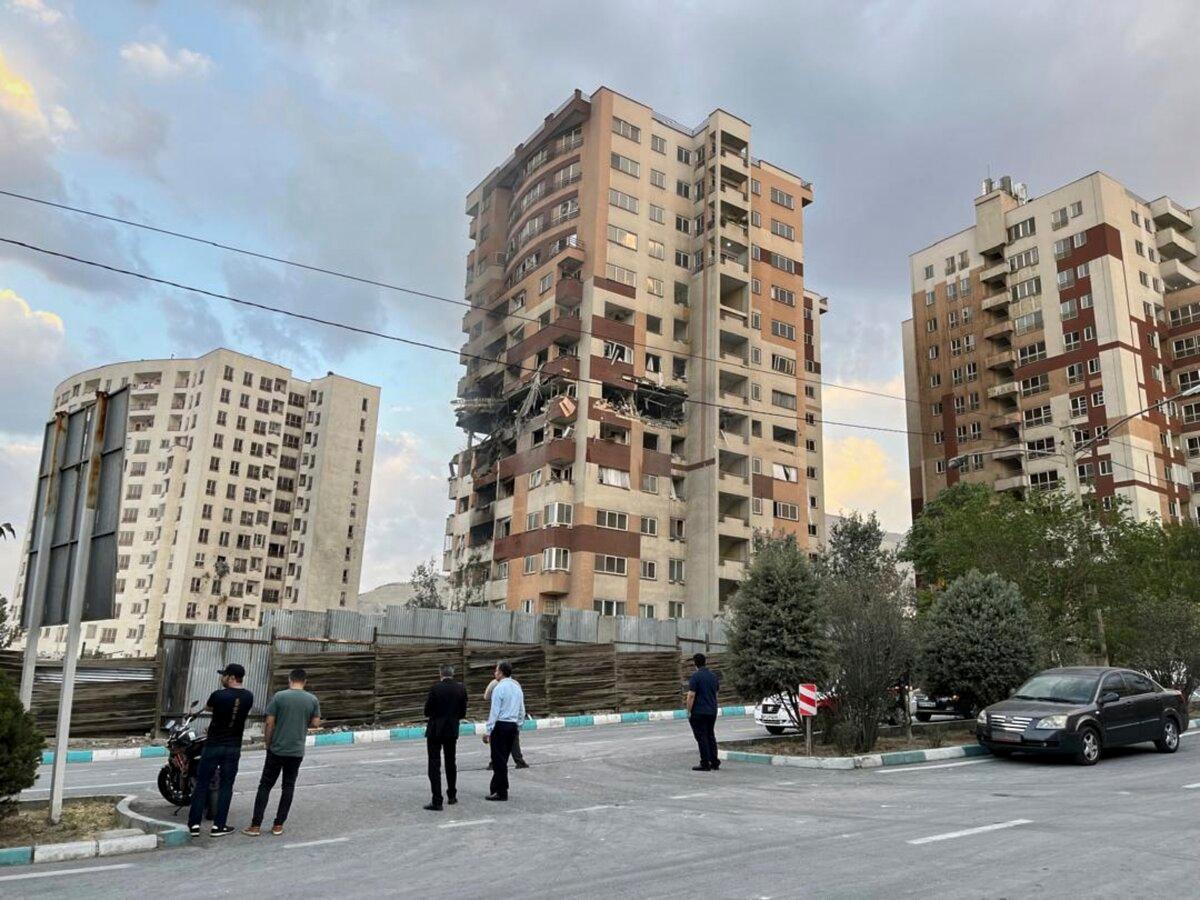
The airspace around Iran is also closed.
Iraq’s airspace is also closed, according to state media.
“All nations who have been attacked by Iran ... [have] an obligation to get this right and provide whatever assistance Israel needs so they can conduct the attacks to complete this mission and put their nuclear weapons program back decades, if not forever,” Pompeo told Fox News’ Sean Hannity on June 12 shortly after news of the Israeli strike broke.
If a nuclear conflict in the Middle East had occurred, it “would have been devastating, not only for the Israelis but [also] for American interests,” Pompeo said.
Although Israel and others are bracing for retaliation, Iran’s past threats never panned out in the past, Pompeo said, calling their past responses “very weak, very ineffectual.”
“The IDF began pre-emptive and precise strikes targeting the Iranian nuclear program in order to prevent the Iranian regime's ability to build a nuclear bomb in the immediate time frame,” he said. “We have no choice. We are operating against an imminent and existential threat. We cannot allow the Iranian regime to obtain a nuclear weapon that would be a danger to Israel and the entire world.”
He added, “This operation is for our right to exist here, for our future, and for our children's future.”
Netanyahu said the strikes are “a targeted military operation to roll back the Iranian threat to Israel's very survival.”
He said that Iran has stockpiled enough enriched uranium to produce nine atomic bombs, and if not stopped, could produce its first nuclear weapon in just a few months.
“This operation will continue for as many days as it takes to remove this threat,” the Israeli leader said.
Netanyahu said that after World War II, “the Jewish people and the Jewish state vowed, ‘Never Again.’ Well, ‘Never Again’ is now.”
“Today, Israel has shown that we’ve learned the lessons of history. When enemies vow to destroy you, believe them.”
The strike was described as being precise and based on high-quality intelligence aimed at damaging the nuclear program, and it was in response to the Islamic regime’s ongoing aggression against Israel, according to the spokesperson.
The nuclear facilities were some of the dozens of military targets across Iran that were hit during the opening strike.
“Today, Iran is closer than ever to obtaining a nuclear weapon. Weapons of mass destruction in the hands of the Iranian regime are an existential threat to the State of Israel and to the wider world,” the IDF wrote on social media platform X.
“The State of Israel has no choice but to fulfill the obligation to act in defense of its citizens and will continue to do so everywhere it is required to do so, as we have done in the past.”
Starting around 8:00 p.m. ET, prices for the two biggest cryptocurrencies—Bitcoin and Ethereum—began to nosedive.
Around 7:50 p.m., before news of the strikes broke, the price for one Bitcoin sat around $106,040. As of 9:04 p.m., the price had dropped to $103,294, more than a 2 percent drop in the past hour.
Ethereum has dropped by more than 5 percent in the past hour.
It comes as oil prices are also rising, surging 6 percent since the strikes were reported.
“We are not involved in strikes against Iran and our top priority is protecting American forces in the region,” Rubio added.
According to Rubio, Israel has advised the United States that it believed the attack was necessary for its self-defense.
The secretary of state warned Iran against targeting U.S. interests or personnel in the region in retaliation for the attack.
“President Trump and the Administration have taken all necessary steps to protect our forces and remain in close contact with our regional partners,” Rubio said. “Let me be clear: Iran should not target U.S. interests or personnel.”
Republicans have expressed broad support for Israel, but some Democrats have been critical.
Following the strike, coming after days of tensions over Iran’s nuclear program, Israel has declared a state of emergency nationwide.
“Game on,” Sen. Lindsey Graham (R-S.C.), a longtime proponent of a hawkish stance toward the Persian state, wrote in a post on X. [delete] “Pray for Israel.”
Sen. Rick Scott (R-Fla.) echoed the sentiment in a post on X.
“Tonight, I ask every American to join me in praying for the safety of U.S. personnel in the Middle East and the safety and success of Israel as it takes action against a leading state sponsor of terrorism and our shared enemy, Iran,” Scott said.
“Proud to stand with Israel,” Sen. Tom Cotton (R-Ark.) said in another post on the platform.
Rep. Tony Gonzalez (R-Texas) wrote on X, “A nuclear Iran means terror for the free world. America prays for Israel.”
Rep. Joaquin Castro (D-Texas) was more critical, calling the attack “pure sabotage” of the ongoing U.S. nuclear negotiations with Iran.
“The administration … [was] about to start the next round of negotiations to reach a deal with Iran,” Castro said. “This attack by Netanyahu is pure sabotage.”
“What does ‘America First’ even mean if Trump allows Netanyahu to drag the country into a war Americans don’t want?” Castro said.
A defense official has confirmed that the United States was not involved in the strikes.
“There was no U.S. involvement or U.S. assistance,” the defense official said.
The defense official referred to the White House for further details about the developing attack. The White House did not immediately respond to a request for comment from The Epoch Times.
- Israel in the early hours of Friday said it launched targeted strikes on Iran's nuclear program.
- Israeli Prime Minister Benjamin Netanyahu described the strikes as "a targeted military operation to roll back the Iranian threat to Israel's very survival."
- The operation will continue for "as many days as it takes to remove this threat," said Netanyahu.
- Israel has declared a state of emergency, and flights to and from Israel have been suspended.
- The leader of Iran’s Islamic Revolutionary Guard Corps, Gen. Hossein Salami, and the commander of Iran's Armed Forces, Maj. Gen. Mohammad Bagheri, were killed from the attacks, according to Iranian state media. Other top military officials and scientists were killed, state media said.
- Iran’s Supreme Leader Ayatollah Ali Khamenei said Friday that Israel will face “severe punishment" over the attack.
